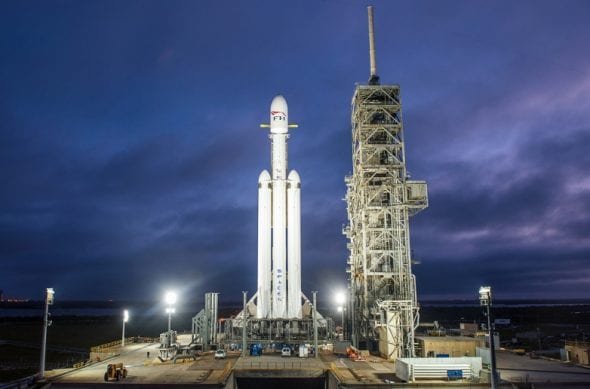Rockets, the Environment and Congress: Thinking Ahead
As American rocketry moves into a new and more vibrant phase our priorities should be simple: to encourage domestic job growth, make launches cheaper, and keep our own national security assets close to home. One factor not often discussed in this important conversation, however, is the environmental impact of space launches. Let’s talk about it.
There is good news and bad news, but more good than bad. Young American rocketry companies are beginning to make a wide variety of lower and higher level launches possible, with new tolerances, types, weights and objectives for small and large payloads — as well as more regular launches.
Naturally, this raises the specter – as space debris in geosynchronous orbit once did – of environmental impact. Perhaps unexpectedly, this news is not all bad. In fact, if policy makers in Congress and agency leaders parse the options, news may be more good than bad.
Earlier this year, a scholarly study performed by the Center for Space Policy and Strategy, was released; suggesting that Congress and others should be more closely focused on what expanding rocket launches may mean for the stratosphere.
The reality is simply put: while more rockets may bring a need for more research on their impact on the atmosphere, the impact is currently projected to be low – as long as the right choices are made early.
And what are these “right choices”? The answer is based in science, not politics, but may require a closer look at launch propellants, as agencies and Congress move to advance smaller rocket companies, which are objectively becoming more capable, versatile, cheaper and increasingly important for both US national security and the security of allies.
The study offered basic conclusions. First, “impact of rocket-engine emissions on stratospheric ozone and climate forcing” is modest, but needs clarity, as well as “new interagency strategies to better understand the scientific, economic, and policy implications of these phenomena.”
Further, the study suggested the US Air Force and others should think about issues like what fuels are used in launching rockets. Most notably, the study observed potentially significant and possibly adverse environmental impacts from solid fuel rocket engines, as well as methane and kerosene. If options can be chosen that do not include those fuels, they may be more environmentally neutral.
Researchers offered: “Looking ahead to the coming decade, the global launch industry and its stakeholders should encourage, facilitate, and fund objective scientific research on rocket emissions and engagement with international regulators to define metrics.”
If this idea were paired with choosing (or advancing) a parallel idea; promoting smaller rocketry launches that did not use solid fuel engines, methane or kerosene; the upshot might be preemption of future environmental impact. On one hand, Congress and agencies could move this direction. On the other, self-regulation – or general private sector movement this way – might forestall unnecessary regulation.
In the end, the issue itself is in its “plume phase,” very early in the process of identifying its true trajectory. But let’s be real about this: if agencies, Congress and others want to get ahead of the issue, they should ask rocketry companies — especially new and vigorous American ones — what fuel they are using.
If solid fuels, methane or kerosene create environmental change that is avoidable, maybe the right answer would be to favor those advancing this robust new sector that do not use those fuels. There are other, less-harmful fuels; and those who will lead this sector may be the ones who which will best utilize them.




